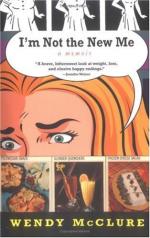“It seems to me,” he wrote Hardin, “that on reflection you will see the fact of your having been in Congress has, in various ways, so spread your name in the district as to give you a decided advantage in such a stipulation. I appreciate your desire to keep down excitement; and I promise you to ‘keep cool’ under all circumstances.... I have always been in the habit of acceding to almost any proposal that a friend would make, and I am truly sorry that I cannot in this. I perhaps ought to mention that some friends at different places are endeavoring to secure the honor of the sitting of the convention at their towns respectively, and I fear that they would not feel much complimented if we shall make a bargain that it should sit nowhere."[10]
[Footnote 10: From a letter published in the “Sangamo Journal” of February 26, 1846, and which is not found in any collection of Lincoln’s letters and speeches.]
After General Hardin received this refusal he withdrew from the contest, in a manly and generous letter which was warmly approved by the Whigs of the district. Both men were so much loved that a break between them would have been a disastrous thing for the party. “We are truly glad that a contest which in its nature was calculated to weaken the ties of friendship has terminated amicably,” said the “Sangamo Journal.”
[Illustration: ROBERT C. WINTHROP, SPEAKER OF THE THIRTIETH CONGRESS.
Born in Boston in 1809, graduated at Harvard, and studied law with Daniel Webster. Winthrop’s career as a statesman began with his election to the Massachusetts House of Representatives in 1834. He remained there until elected to Congress in 1840, where he served ten years. In 1847 he was elected Speaker by the Whigs. In 1850 Winthrop was appointed Senator to take Daniel Webster’s place, but he was defeated in his efforts to be re-elected. Candidate for governor in the same year, he was also defeated. He retired from politics after this, though often offered various candidacies. Winthrop was especially noted as an orator.]
The charge that Hardin, Baker, and Lincoln tried to ruin one another in this contest for Congress has often been denied by their associates, and never more emphatically than by Judge Gillespie, an influential politician of the State. In an unpublished letter Judge Gillespie says: “Hardin was one of the most unflinching and unfaltering Whigs that ever drew the breath of life. He was a mirror of chivalry, and so was Baker. Lincoln had boundless respect for, and confidence in, them both. He knew they would sacrifice themselves rather than do an act that could savor in the slightest degree of meanness or dishonor. Those men, Lincoln, Hardin, and Baker, were bosom friends, to my certain knowledge.... Lincoln felt that they could be actuated by nothing but the most honorable sentiments towards him. For although they were rivals, they were all three men of the most punctilious honor, and devoted friends. I knew them intimately, and can say confidently that there never was a particle of envy on the part of one towards the other. The rivalry between them was of the most honorable and friendly character, and when Hardin and Baker were killed (Hardin in Mexico, and Baker at Ball’s Bluff) Lincoln felt that in the death of each he had lost a dear and true friend[11].”




